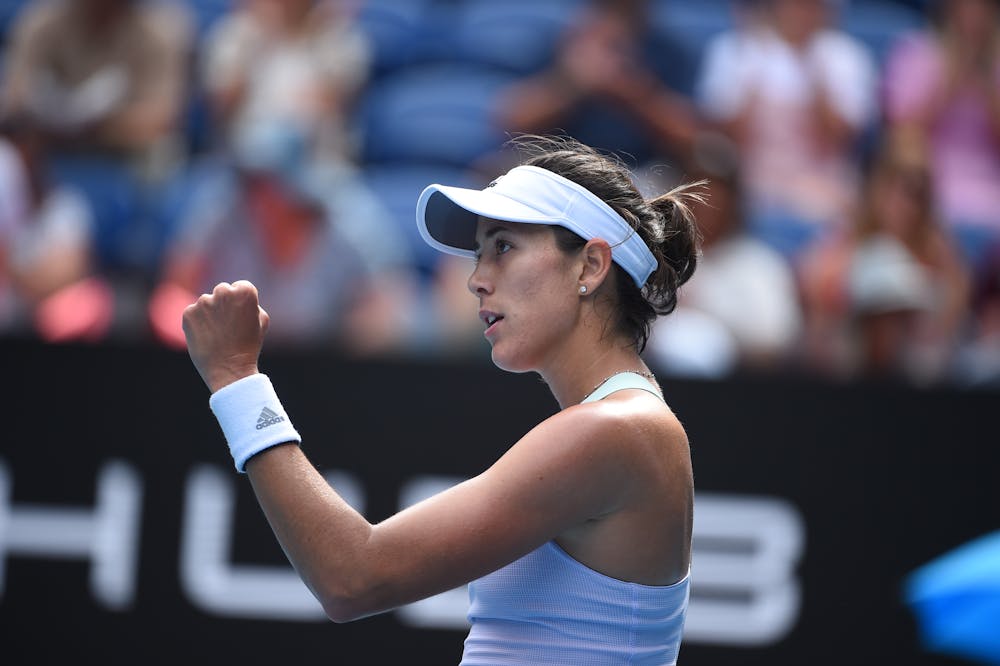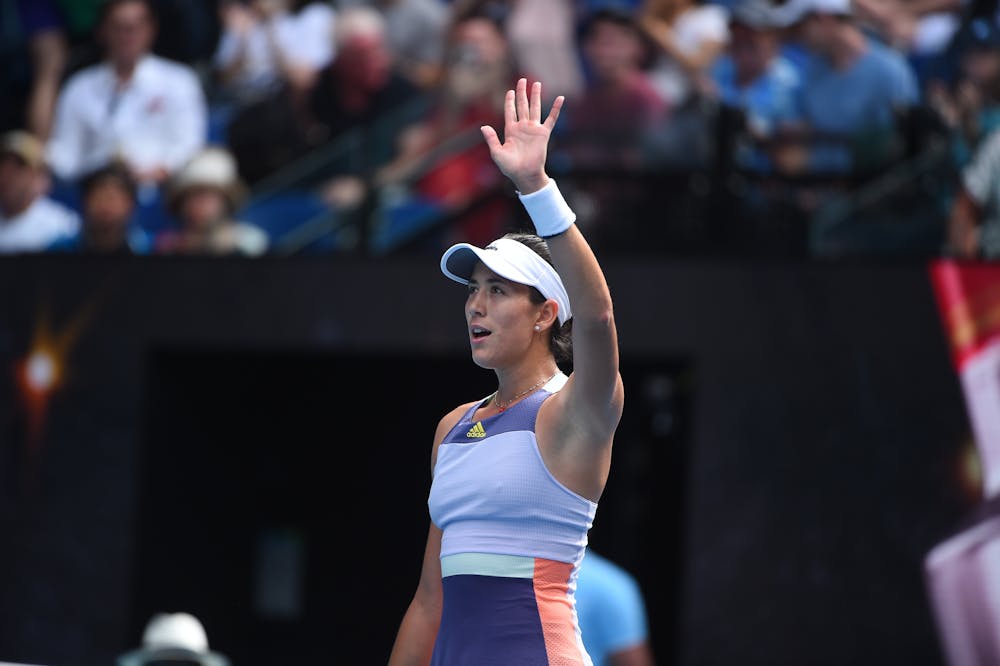Garbine Muguruza has already scaled many heights in her career, from her first Grand Slam title at Roland-Garros in 2016 to her triumph at Wimbledon 12 months later.
High-flying Muguruza into semi-finals
Climbing Kilimanjaro gives Spaniard new perspective.

But it seems that the achievement of climbing the almost 6,000-metre Uhuru peak of Mount Kilimanjaro in November may just have been the catalyst to get her mind in the right place to have another crack at a grand slam title.
The Spaniard’s 7-5, 6-3 win over Anastasia Pavlyuchenkova of Russia on Wednesday put her through to a semi-final at the Australian Open against Simona Halep, the current Wimbledon champion and like Muguruza, a former Roland-Garros winner too.
"Do you know who you play next?"
— #AusOpen (@AustralianOpen) January 29, 2020
"I don't know"
Breaking the news to @GarbiMuguruza...#AusOpen | #AO2020 pic.twitter.com/sVExPMS48V
For all her success, the 26-year-old has also experienced plenty of lows. She has gone out in the first round in five of her 29 Grand Slam events, including this one, and in round two nine times. Since her win at Wimbledon in 2017, she had gone past the quarters in a Slam only once before her win over Pavyluchenkova.
"It was a life-changing experience"
Climbing Africa’s highest peak is something that many have accomplished but many have failed. Martina Navratilova, the former women’s world No 1 failed to make the top after suffering from altitude sickness, a common occurrence unrelated to how fit a person is. For Muguruza, it was a profound experience and one she said changed her outlook.
“It definitely was a life-changing experience,” she said, when asked if it had inspired her run to the semi-finals. “I cannot give a simple answer to such a complicated question because it's not the right moment to talk about it. But it definitely had an impact on me, not as a tennis player, but just in general. Being through such a tough challenge, I think, yeah, did many things inside of me.”
Back to business
Muguruza’s inconsistency in grand slam events may have cost her chances to add to her tally, but she believes people do not quite realise how tough it is to peak for four events every year.
"I think the toughest moment is when you work hard, work like before, or even harder, and you don't feel like results are coming fast," she said. "So I think that's the tricky part of us. Athletes sometimes can get a little bit desperate, get too impatient about it. It's very tough to be for so many years in the top of the game, being that consistent. I feel like it's something super hard to do. Barely few players can hold that for many, many years in a row."
Muguruza may just feel like the title has her name on it, too, having almost gone out in round one when, struggling with the after-effects of a virus, she dropped the first set 6-0 to the American, Shelby Rogers, and needed her blood pressure checked by the doctor.
“It definitely has been from low to high, not starting at my best, then each day recovering, I was training at the same time,” she said. “Very happy with the evolution of how I started. I wasn't thinking that far away. I came not feeling great. I wasn't really thinking, how far will I go? I had enough already thinking, how will I go practice today? I took every day at a time. Like that, each day I was gaining a better feeling instead of getting frustrated thinking in the future.”
Getting back to the business end of a slam, though, has been hugely enjoyable for Muguruza, punctuated by an excellent success rate at the net, winning 79 percent of points.

"I'm just excited to see how far I can go"
Moving forward and using her height and wingspan at the net is something that Conchita Martinez, who began a second, more permanent spell as coach at the start of this year, believes is a barometer of her game.
Martinez was on hand when Muguruza won Wimbledon and took over on a permanent basis at the start of 2020. “When she's feeling comfortable with that, trusts herself with that, then that's when you can start going to the next step,” Martinez said. “In our mind, it was very clear that's her type of game.”
Three of the four semi-finalists - Muguruza, Halep and Ash Barty – have won Grand Slam titles and the Spaniard said knowing that you can get yourself over the line, in the biggest tournaments, is a big advantage when it comes to dealing with the pressure.
“I think once you have done it, it definitely gives you a certain confidence that you can handle two weeks' competition, Grand Slam, playing many matches,” she said. "Not a lot of people can say that they have done it. In my case, I know it's where I feel the most motivated. I just don't think too much about it. I'm just happy to be here, excited to see how far I can go.”
 ROLAND-GARROS
19 May - 8 June 2025
ROLAND-GARROS
19 May - 8 June 2025

